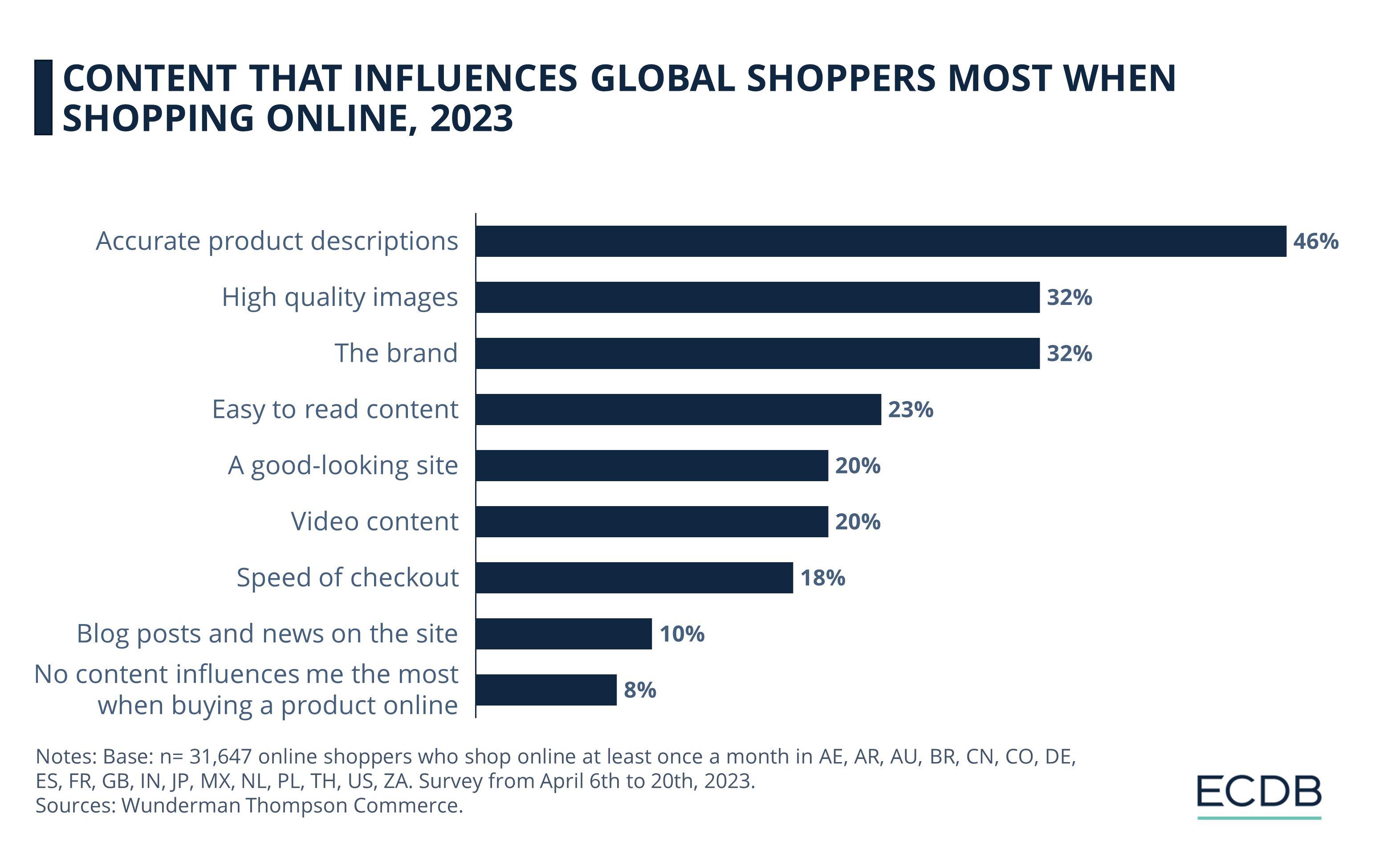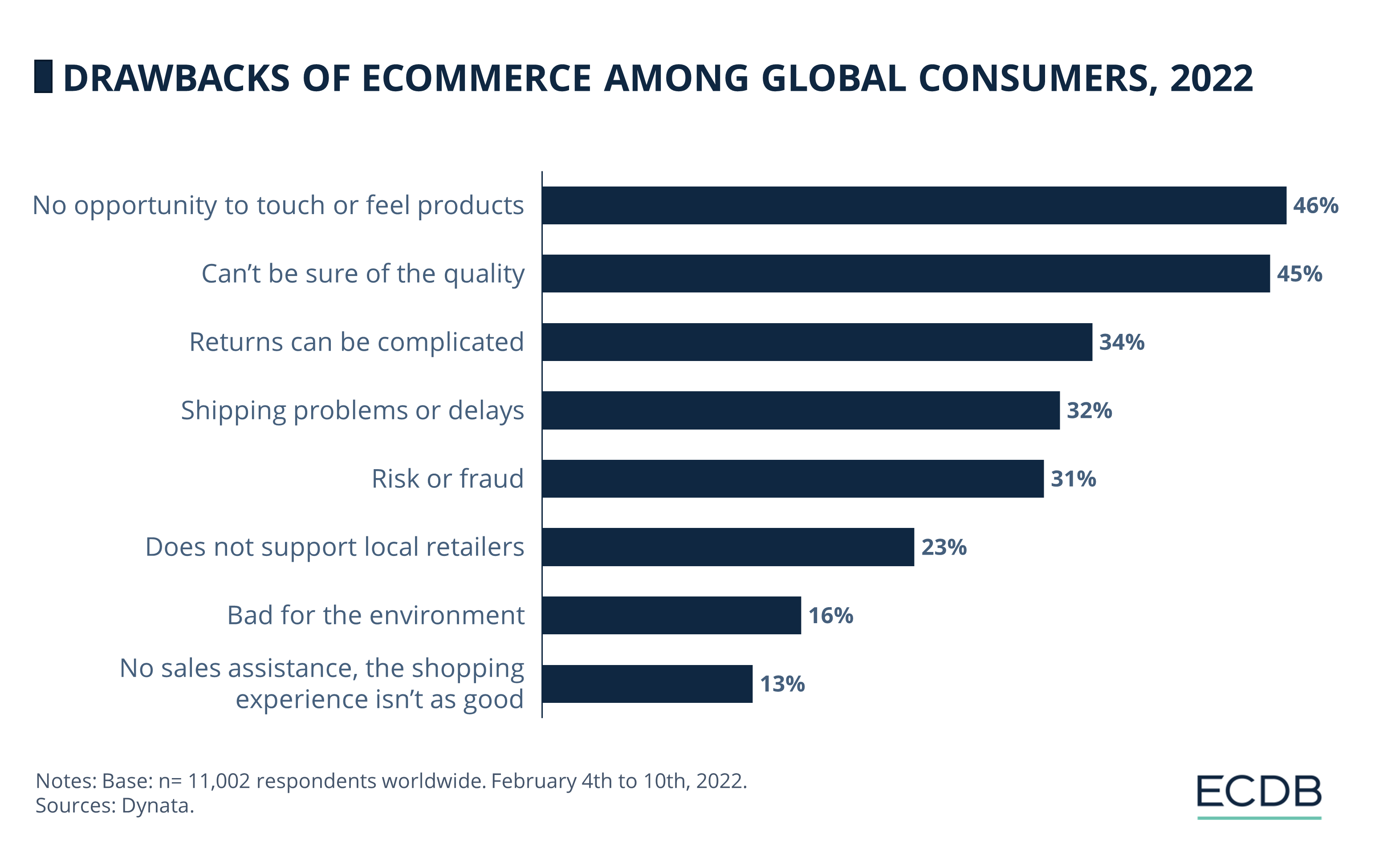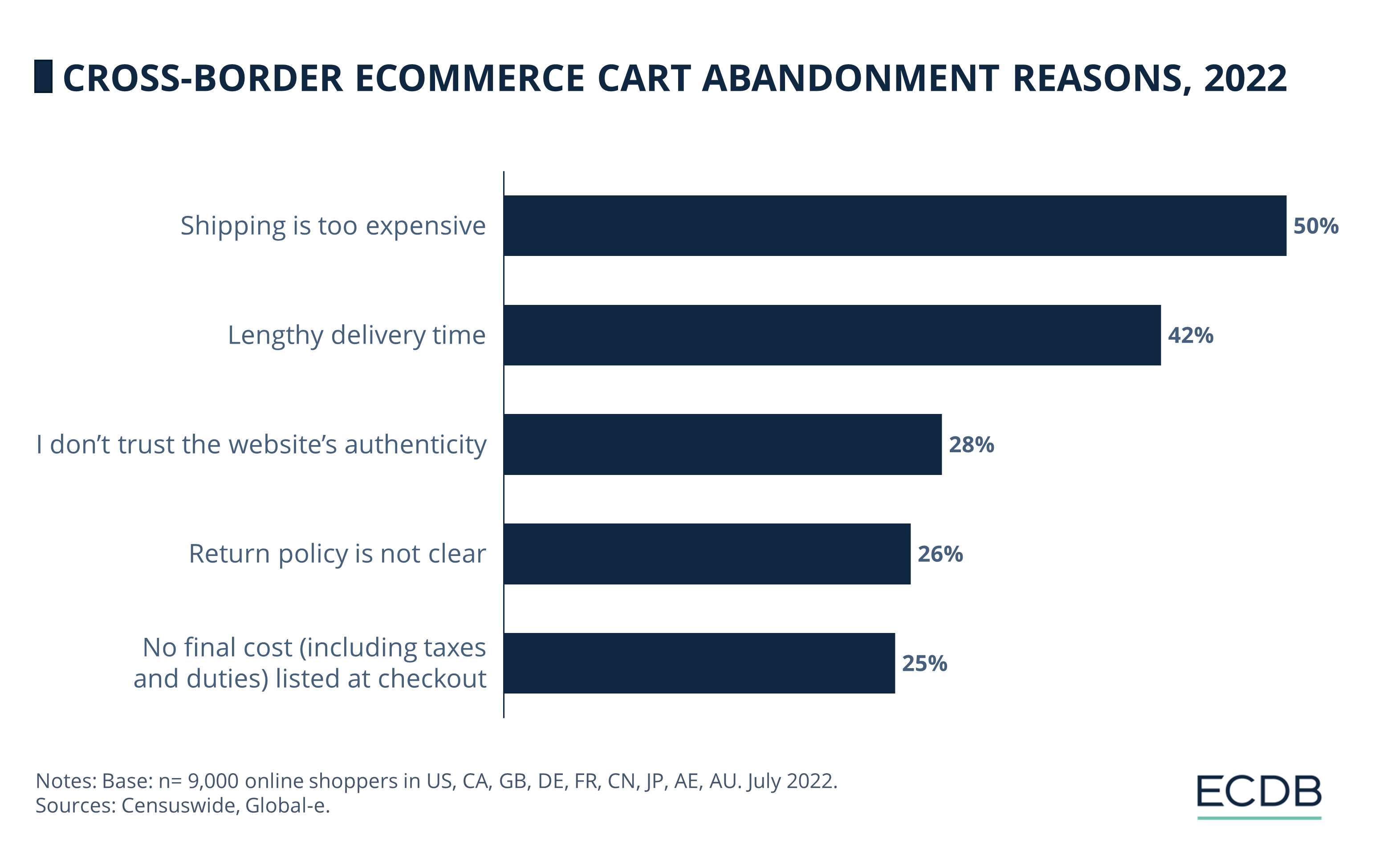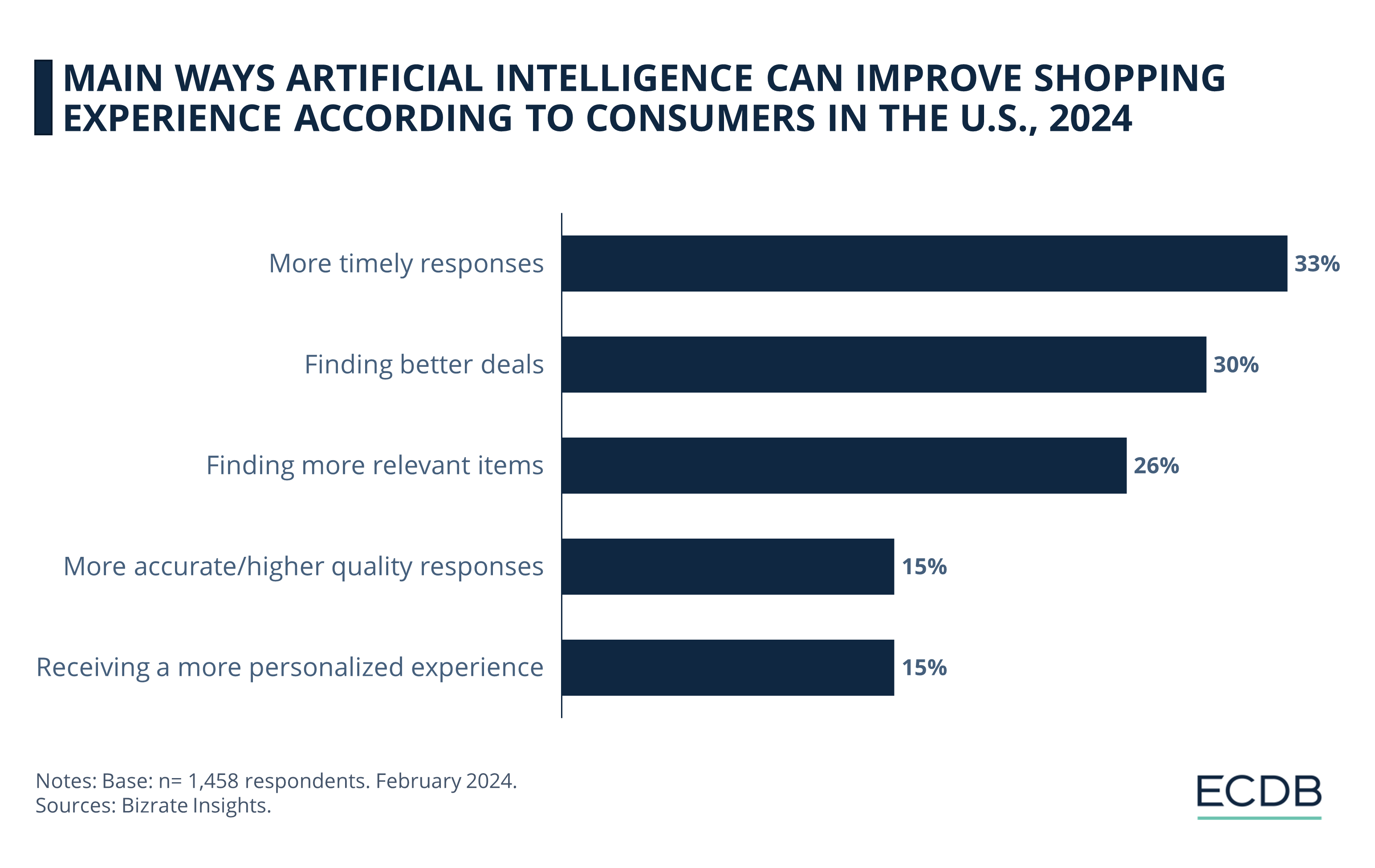eCommerce: Consumer Behavior
Shopping Behavior in eCommerce: What Do Online Shoppers Really Want?
Discover the psychology that drives online shopping decisions. From persuasive product info to brand credibility, we unravel what makes consumers click "Add to Cart."
Article by Cihan Uzunoglu | June 17, 2024Download
Coming soon
Share

Shopping Behavior & User Preferences: Key Insights
Product Descriptions:
Accurate product descriptions are the most influential factor in online purchasing decisions, as they help shoppers make informed decisions and reducing returns by compensating for the inability to touch or feel products.
Trust and Credibility:
Trust and credibility are essential in online shopping, as consumers are more likely to buy from reputable brands and local businesses to mitigate the risk of fraud.
AI Enhancements: AI is significantly enhancing the online shopping experience by providing timely responses, better deals, more relevant item recommendations, and a more personalized experience for consumers.
What compels you to finalize a purchase when you're scrolling online? Is it a persuasive product description or a compelling brand reputation? The psychology behind modern online shopping is not just intriguing but vital for businesses to understand. Accurate product information and brand credibility stand as twin pillars influencing consumer choices.
Elements that people prioritize when clicking "Add to Cart" include everything from the significance of high-quality visual aids to the less obvious but still crucial role that site aesthetics and blog content play.
What Type of Content Influences Online Shoppers the Most?
Findings from Wunderman Thompson Commerce's Future Shopper Report for 2023 sheds light on the priorities of online shoppers.
The leading factor that influences purchasing decisions is accurate product descriptions, with 46% of shoppers ranking this as most important. This may or may not come as a surprise to some, but robust product descriptions are far more important than they are given credit for – more on that later.
High-quality images and the brand, both at 32%, follow in the second spot. These elements show that customers value clear, detailed information about a product, as well as the reputation of the brand selling it.

Additional factors include easy-to-read content, highlighted by 23% of shoppers, and the aesthetic appeal of the website and video content, both at 20%. These aspects point to the importance of user experience and engagement in influencing shopping decisions. Speed of checkout is a consideration for 18% of shoppers, whereas blog posts and news articles on the website sway only 10%.
In order to improve our understanding of the matter, we will group these factors into bigger themes. The aspects that shape online shopping behaviors coalesce around two pivotal themes: product information and presentation, as well as trust and credibility factors.
Product Descriptions Go a Long Way
In a space where most of the basic senses are eliminated – touch, smell and taste – consumers and sellers alike have to work with what’s left – sight and hearing.
According to the results of a survey by Dynata, the top two drawbacks of eCommerce among global consumers are the lack of opportunity to touch or feel products and the inability to be sure of the quality, agreed by 46% and 45% of respondents, respectively.

In this vein, accurate and easy to read product descriptions are critical as they provide shoppers with essential details like dimensions, materials, and functionalities. Comprehensive information helps shoppers make informed decisions and reduces the chances of returns.
Another way of tackling this is providing good visuals of the products being sold. High-quality images contribute to this by giving a closer look at products and simulating the in-store experience, showing the product from multiple angles and may include zoom-in features.
In addition, video content as well offers a dynamic presentation of a product, showcasing its features in action. Videos can also provide testimonials or how-to guides, making them a powerful tool for influencing decision-making.

Like this insight? It is based on our regularly updated rankings. With our retailer and country rankings, you can learn valuable information about your specific market. Our product category rankings and benchmarks allow you to see where various businesses are currently evolving. This information can aid in your decision-making, whether you are a business developer, shop owner, or CEO of a large eCommerce brand. Stay a step ahead of the market with ECDB.
Trust and Credibility Factors
With so much fradulent activity taking place online every day, it’s quite reasonable that consumers want to trust a brand before they shop from them. A strong brand acts as a marker of trust, offering a sense of reliability and quality assurance. Buying from a reputable brand can reduce the perceived risk for online shoppers, which is important to mitigate concerns about fraudulent activities.
Credibility is also one of the key aspects for consumers in deciding whether to shop online or in-store. Findings of a survey by Uberall provides valuable takeaways in this context: in France, Germany, the United Kingdom, and the United States, a little above two thirds (67%) of consumers consider it more likely to trust a business in their community than an exclusively online one.

What about when consumers order online from a different country? You guessed it, trust is key there too.
When it comes to cross-border eCommerce, which marked a nearly 60% surge in sales between 2019 and 2021 in Europe, lack of trust in a website’s authenticity is the third leading reason (with 28%, behind shipping and delivery issues) for consumers worldwide to abandon their carts, as per a report published by Global-e.
AI's Role in Enhancing the
Online Shopping Experience
In case you're surprised that we haven't dropped 2023's hottest buzzword yet, artificial intelligence (AI) is, of course, already playing a significant role in the online shopping world. While the integration of AI into eCommerce platforms is already showing promising results, its potential for improving the shopping experience is vast.
According to recent data from Bizrate Insights, there are several key areas where AI can enhance the online shopping experience for consumers in the United States. Leading the list is the ability to provide more timely responses, with 33% of consumers citing this as a primary benefit. Finding better deals is another significant advantage, highlighted by 30% of respondents.

Moreover, 26% of consumers believe that AI can help them find more relevant items. Other notable benefits include more accurate or higher quality responses and receiving a more personalized experience, each noted by 15% of respondents.
Incorporating AI into the eCommerce experience aligns well with the themes of product information and presentation, as well as trust and credibility, discussed earlier in this article. As AI technology continues to evolve, its ability to provide accurate information and enhance brand credibility will only grow, making it an indispensable tool for online retailers.

Sources: Dynata, Uberall, Global-e, Bizrate Insights, Statista, ECDB

Click here for
more relevant insights from
our partner Mastercard.
Related insights
Deep Dive
Next Generation eCommerce: Key Trends Shaping the New Age of Online Retail
Next Generation eCommerce: Key Trends Shaping the New Age of Online Retail
Deep Dive
Google's AI Project Jarvis Could Change Online Shopping
Google's AI Project Jarvis Could Change Online Shopping
Deep Dive
The Customer Journey in Online Shopping: It Begins with Search Engines
The Customer Journey in Online Shopping: It Begins with Search Engines
Deep Dive
TikTok Shop Expands Operation in the United States
TikTok Shop Expands Operation in the United States
Deep Dive
Fast Fashion Online Market: Fast Fashion Is Not Fair Fashion
Fast Fashion Online Market: Fast Fashion Is Not Fair Fashion
Back to main topics